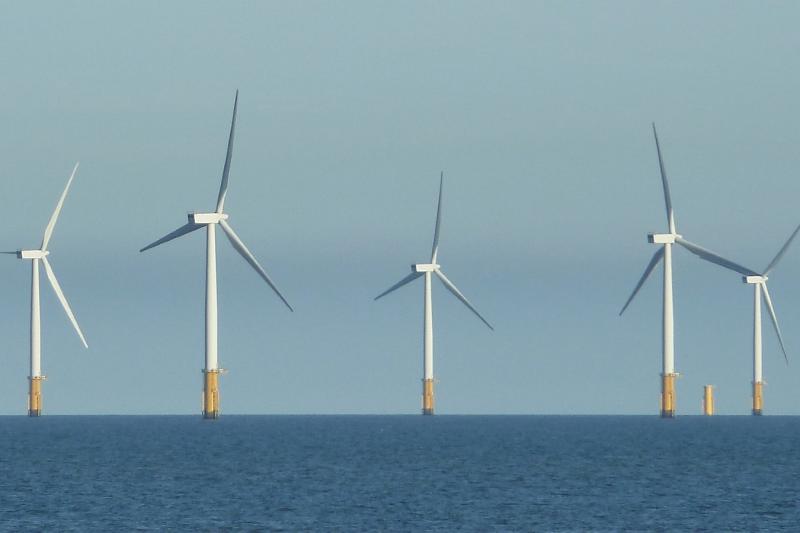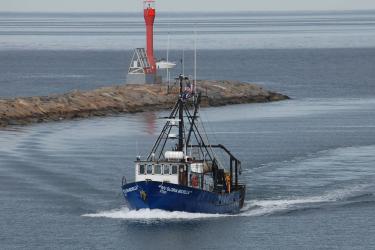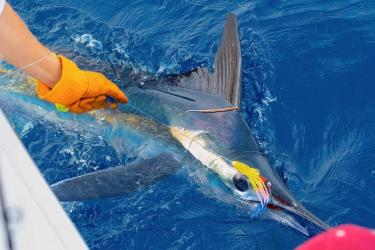NOAA Fisheries and the Bureau of Ocean Energy Management (BOEM) continue collaboration in pursuit of responsible and rapid deployment of offshore wind in the United States through the final Federal Survey Mitigation Strategy to address anticipated impacts of offshore wind energy development on NOAA Fisheries’ scientific surveys. The joint strategy underscores NOAA Fisheries and BOEM’s shared commitment to advance offshore wind energy production responsibly while protecting marine biodiversity and promoting ocean co-use.
Offshore wind energy development has the potential to play an important role in U.S. efforts to combat the climate crisis and build a clean energy economy, and NOAA supports the Administration’s goals of rapidly and responsibly advancing offshore wind energy in U.S. waters to mitigate climate change and bolster the blue economy. The Biden-Harris Administration set a goal of significantly increasing the nation’s offshore wind energy capacity to 30 gigawatts by 2030 and another goal of deploying 15 gigawatts of floating offshore wind energy by 2035. Many states have also set ambitious renewable energy goals.
NOAA Fisheries’ surveys are essential for collecting the data necessary to inform the sustainable management of our nation’s fisheries, recovery of protected resources, conservation of habitats and ecosystems, and understanding the impacts of climate change. Offshore wind development can adversely affect NOAA Fisheries’ surveys by precluding access to sampling areas, impacting statistical design, altering habitats, and interfering with survey operations. The joint strategy aims to avoid such impacts.
The final strategy incorporates public comments and identifies the essential components of mitigating impacts of offshore wind energy development on the surveys, as well as actions to accomplish the goals and objectives of mitigation. Mitigation of impacts to fishery and protected species surveys involves developing and deploying new approaches to surveying in and around offshore wind energy developments. The data generated from these new approaches must be comparable data to the impacted surveys and calibrated to current approaches to minimize the impact on the integrity of NOAA’s long-time data series.
Nationally, NOAA Fisheries assesses the status of approximately:
- 450 fishery stocks
- 200 marine mammal stocks
- 165 threatened and endangered species (recognizing that some marine mammals are also endangered)
These assessments rely on more than 50 long-term, standardized surveys, many of which have been ongoing for more than 30 years.
While BOEM and NOAA have supported some efforts to address Northeast fisheries survey mitigation needs, full implementation of the Federal Survey Mitigation Strategy will require additional resources for mitigating the impacts of offshore wind energy development on federal fishery and protected resources surveys. The President’s Fiscal Year 2023 budget includes an initial funding request to begin implementation of the Federal Survey Mitigation Strategy. NOAA Fisheries will continue previously funded work with BOEM, as well as collaborate with other partners and ocean users, to implement the strategy. NOAA Fisheries will also work to adapt this strategy to survey mitigation in other regions.
BOEM is the lead federal agency responsible for offshore energy exploration and development in the United States. NOAA provides ocean, atmosphere, and climate information and serves as a consulting federal agency and a permitting agency under the Marine Mammal Protection Act regarding takes of marine mammals.



